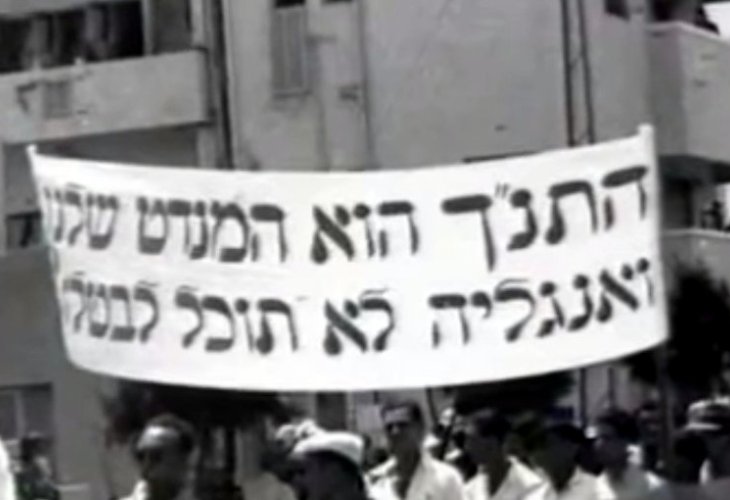Personal Stories
How a Palestinian Student Sparked My Return to Judaism
He was trained to win an international debate. But one unexpected question led him to rediscover his Jewish faith.
- Hidabroot
- |Updated

In Rabbi Aaron Cohen’s community, he is a beloved and respected figure. He’s a ba’al teshuvah, someone who returned to Torah observance and today he helps guide other Jews who are exploring their connection to Judaism. When people ask him how he became religious, he often smiles and says, “Do you know who brought me back to faith? It’s hard to believe, but it was… a Palestinian student.”
Aaron didn’t grow up in a religious home. From a young age, he was known for his intelligence. He attended a special school for gifted children and, at age 22, began studying nuclear physics at a university in Germany. His studies were fully funded by the Israeli government, which hoped to benefit from his talents when he returned home.
The university in Germany hosted students from all over the world, and many of the Arab students openly harassed their Jewish classmates. Although Aaron and his friends weren’t religious or observant, they still experienced antisemitism firsthand.
To ease tensions, the university organized a public debate and invited both Jewish and Arab students to take part. Aaron was chosen to lead the Israeli side. He thought it was a small university initiative, but one day he was surprised to receive a formal invitation from the Israeli Embassy in Bonn, then the capital of Germany.
At the embassy, the ambassador warmly welcomed him and explained that the Foreign Ministry viewed the upcoming debate as very important. They wanted to prepare him thoroughly and assigned him a team of experts, historians, diplomats, Middle East scholars, and professional debaters. These experts worked closely with Aaron, holding practice debates and simulating difficult questions and responses. They played the part of his Arab opponents and pushed him to be sharp and persuasive.
As the debate day drew near, Aaron felt confident. The training had strengthened his knowledge and his delivery. The team had encouraged him every step of the way.
On the night of the debate, the hall was packed. Students from around the world and university staff filled the room, eager to hear the discussion.
The first half went very well. Aaron responded to his opponents with clarity and strength, and the crowd applauded his thoughtful arguments. Everything he had prepared came into play.
At one point, Aaron took out a Bible that someone from the embassy had given him. He opened it to a passage marked by the staff, verses from Parshat Eikev, a portion of the Torah where Hashem promises the Land of Israel to the Jewish people.
He read out loud about how Hashem would drive out the nations before His people, and how every place their feet touched from the desert to Lebanon, and to the western sea would belong to them. No one would be able to stand against the people of Israel, and their awe would spread throughout the land.
Aaron then looked directly at the Arab student and said, “Both we and you believe in the Bible. So perhaps you can explain why you claim for yourselves the very land that God promised to the people of Israel?”
There was silence. His argument was strong. His words were powerful. It looked like the debate was his.
Then came the unexpected.
The Arab student smiled and pointed to the Bible in Aaron’s hand. “You read us three verses,” he said kindly. “Would you be willing to read the verse just before those, the one right before, verse 22?”
Aaron turned back a page and read the verse: “For if you carefully keep all these commandments which I command you to do, to love Hashem your God, to walk in all His ways, and to cling to Him…”
The student looked at him and said gently, “That’s the condition. That’s the promise God gave with a requirement. So if you’re not keeping the mitzvot (commandments), if you’re not living by your religion, how can you demand the land?”
“By Heaven’s kindness,” Rabbi Aaron recalls, “I was able to steer the discussion a little and soften the impression his words made on the audience. But the debate was over. I went back home that night, and I couldn’t sleep. His words echoed in my mind. His question wouldn’t leave me: how can we claim the Land of Israel if we’re not keeping the condition that comes with it?”
That was the beginning of the journey.
“That moment started the process that led me back to Torah,” Rabbi Aaron concludes. “And you see I wasn’t wrong. I really did come back to faith thanks to a Palestinian student.”

